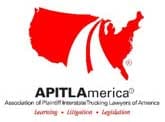Basic Estate Planning Principles
Basic Estate Planning Principles
By
J. Cale Rogers
Coleman, Chambers & Rogers, LLP
This article is intended for educational purposes only and is not intended, nor should be construed to provide legal advice.
The future of the Federal Estate Tax is the subject of much debate among estate planning attorneys. An individual that dies in the calendar year of 2010 will have no taxes assessed against their estate, as the tax has been repealed for that calendar year. However, for individuals that die in 2010, estate assets will not receive a “stepped-up” basis for income tax purposes. The law, as it is currently written, provides that the “Exclusion Amount” (the value of property that may be passed by an individual upon their death free of tax) will be $1,000,000.00 for the calendar year of 2011. While many tax professionals and estate planning attorneys believe that the current administration will seek to amend the estate tax statute, the future of the estate tax is currently somewhat uncertain.
The statute, as it is currently written, will impose a tax on that portion of an estate that exceeds $1,000,000.00 for an individual that dies in 2011. The value of an individual’s estate for federal estate tax purposes includes probate assets, as well as any survivorship or payable-upon-death assets held by the decedent at the time of their death and any life insurance proceeds paid upon the death of the decedent (unless the same have been sufficiently removed from the decedent’s estate via an accepted estate planning tool).
With the exception of the calendar year of 2010, estate planning attorneys generally seek to maximize the Exclusion Amount for both spouses. There are a handful of specialized trusts, including what is commonly referred to as a Credit Shelter Trust, which, when properly employed, can provide tax savings to larger estates. A properly-employed Credit Shelter Trust will leave a portion of the estate to the decedent’s children (usually in trust), while leaving the remainder to the spouse (either outright or in trust through provisions that qualify for the marital deduction). This structure allows the surviving spouse to utilize the Exclusion Amount a second time upon her death, effectively resulting in a shelter of the exemption amount a second time. Wills that employ this sort of framework have been the cornerstone of estate planning for many years.
A new vehicle being employed by some estate planning attorneys is referred to as a “Disclaimer Will”. Pursuant to such an instrument, the Testator leaves all property to the spouse outright. There is a Credit Shelter Trust that is established in the will, and a provision that states that any asset disclaimed by the spouse is used to fund the Credit Shelter Trust. This mechanism provides the surviving spouse with the flexibility to engage in post-mortem tax planning after the death of the first spouse. To the extent that the surviving spouse and her tax professionals do not deem it necessary to fund the Trust, then the Will acts as a simple will.
For larger estates, there are also other estate planning techniques that can be employed to reduce the estate tax, including utilizing the annual gifting exclusion to gradually reduce a large estate over time, the implementation of a Life Insurance Trust which, when properly employed, can remove the value of a life insurance policy from a deceased person’s estate, and the creation of a Family Limited Partnership or Limited Liability Company when a wealthy individual has a large tract of land or a portfolio heavy in real estate. To the extent that you and your spouse have assets that approach the threshold for the estate tax, you would be well served by discussing your options with an attorney familiar with estate planning concepts.
At Coleman, Chambers & Rogers, LLP, we have attorneys who can review your current estate planning strategy, advise you of the tax consequences surrounding your estate based on your assets and finances, and implementing measures to legally reduce the tax that would be imposed upon your estate at your death.
About the author: Cale Rogers is a partner and attorney with Coleman, Chambers & Rogers, LLP, in Gainesville, Georgia. The law firm of Coleman, Chambers & Rogers, LLP regularly handles Estate Planning matters.
















